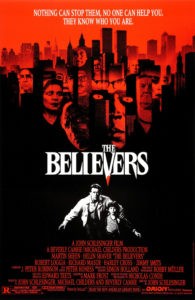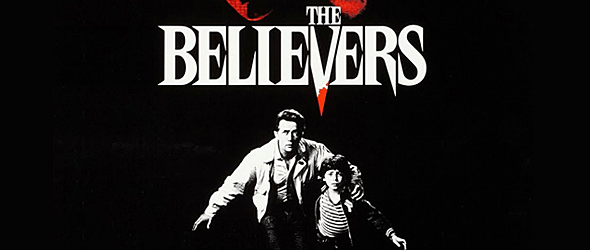For more than a decade, I taught a seminary course in religion and film. Occasionally, students would elect to take the course, assuming we would be viewing and discussing faith-based, Christian-message movies. Looking at the syllabus on the first class day, however, they would discover instead that we would be viewing mainstream movies characterized by excellent storytelling — even R-rated ones like Frozen River and Philadelphia — in order to analyze embedded theological themes such as struggle or acceptance.
 I emphasized to class members that God can speak to us through the medium of movies, for God is encountered in the everyday stuff of life. Also, a film does not have to be overtly religious in order to teach a spiritual truth.
I emphasized to class members that God can speak to us through the medium of movies, for God is encountered in the everyday stuff of life. Also, a film does not have to be overtly religious in order to teach a spiritual truth.
The late Phyllis Tickle made the provocative claim that more theology is conveyed in and remembered from one hour of television than from all the sermons preached on a given weekend. The same claim could be made concerning popular movies. God is present in many movies for those who have eyes to see and ears to hear.
While searching Netflix a few days ago for something interesting, I decided to watch The Believers, a film from A-list director John Schlesinger which I now know received conflicting reviews when it was released in 1987. Although Roger Ebert of the Chicago Sun-Times called it “an awesomely silly, tasteless, and half-witted movie,” I was fascinated by the review of Hal Hinson from The Washington Post, who declared it “a bizarre, occult thriller about the implications of religious faith.”
I am under no illusion that this is a great movie. In fact, I can’t really recommend it, unless you like scary stories with foreboding imagery and shocking scenes of violence and death.
 The script, written at a time when it was not uncommon to exploit Caribbean religious practices as plot devices, uses Santeria — an Afro-Cuban syncretistic cult that combines some Yoruba beliefs and customs with some Catholic features — as the setting for the story. But the movie is misinformed and misleading. While Santeria does perform animal sacrifice, usually chickens, it does not practice child sacrifice, as this film dishonestly portrays.
The script, written at a time when it was not uncommon to exploit Caribbean religious practices as plot devices, uses Santeria — an Afro-Cuban syncretistic cult that combines some Yoruba beliefs and customs with some Catholic features — as the setting for the story. But the movie is misinformed and misleading. While Santeria does perform animal sacrifice, usually chickens, it does not practice child sacrifice, as this film dishonestly portrays.
“I have to wonder if my children and grandchildren will be sacrificed on the altar of expediency in order to assure someone’s wealth, success, power or position.”
Ebert uses his wit to pan the plot of The Believers. He writes: “One thing you gotta say about Caribbean native religions: they don’t inspire stories that could star Loretta Young … . Movies about Caribbean native religions are always about guys with blank eyes who stare at you for 10 seconds and you’re volunteering to wring the chickens’ necks yourself.”
Yet, I value Hinson’s judgment that the film concerns the implications of religious faith, so despite the weaknesses of this movie I cannot easily dismiss it as exploitative. My religion and film class experience has trained me to think about deeper meanings, even theological ones.
Here are several intriguing and suggestive elements of the film worth contemplating.
- The sacrifice of children is practiced in the belief that it will ensure the wealth, success, power or position of those who willingly surrender them.
- Misguided politicians and powerful elites use their influence to make the acts of sacrifice appear necessary.
- The film’s genre is horror, for the sacrifice of children and the loss for their parents is undeniably horrific.
- Martin Sheen, the primary actor in the film, is best known, ironically, for his portrayal of the occupant of the West Wing.
- The film is titled “The Believers,” denoting those followers who blindly accept the sacrifice and unite to enable the perpetrators.
What do I make of this film and these themes, given the complexity of what we face in 2020? Let me be clear: I do not believe the script writer and director of The Believers were attempting to produce a metaphor for a future America. They were simply writing and directing a horror film and hoping for a profitable return on their investments.
But the implications of this story strike me as suggestive for our contemporary discussion of school reopenings exactly when COVID-19 is spiking all across the land.
As the father-in-law of a high school teacher, the parent of a college professor and of a college administrator, and the granddad of five school-age children, I am concerned about the wisdom of reopening face-to-face instruction in schools in less than a month. I have to wonder if my children and grandchildren will be sacrificed on the altar of expediency in order to assure someone’s wealth, success, power or position.
I can readily see there are politicians pushing the reopening of schools. Sen. John Cornyn of Texas said in a recent NBC interview, “We still don’t know whether children can get it and transmit it to others.” According to the Texas Department of State Health Services — in the state where my family lives — more than 1,700 COVID-19 cases have been confirmed in people ages 0-19 statewide.
Missouri Gov. Mike Parson, on a St. Louis morning talk show, intoned: “These kids have got to get back to school; they’re at the lowest risk possible. And if they do get COVID-19, which they will — and they will when they go to school — they’re not going to the hospitals. … They are going to go home and they’re going to get over it.” And, of course, Donald Trump and Betsy Devos have been forcing states to reopen schools with typical bluster and intimidation.
“The potential sacrifice in lives lost unnecessarily is a horror.”
This scenario carries the possibility of horrible consequences for both children and teachers. Students who catch the virus will return home and potentially infect more immune-compromised family members. Teachers and coaches, school administrators, kitchen and janitorial staff, bus drivers and other adults who work with our schools are also at risk.
The potential sacrifice in lives lost unnecessarily is a horror.
It is hard not to conclude that this plan originated in the West Wing. Getting children back in schools enables parents to go back to work unimpeded. The return to work — opening the economy by opening the schools — is strategic to Trump’s reelection hopes. My skepticism, honed now in the fourth year of this administration, causes me to believe the president does not care that my grandchildren have a more pleasant or fulfilling experience at their schools, only that the economy flourishes, justifying his leadership so that he has a more pleasant and fulfilling experience at the polls in November.
Finally, I am struck by the suggestive title of this horror movie, for it is Trump’s “believers” who put him in office and refuse to acknowledge his character flaws and policy failings. Even more troubling are his evangelical supporters who have somehow made a syncretistic muddle of piety and patriotism.
Sometimes even the most surprising movie can help me to contemplate profound and challenging theological ideas. God really can be encountered in the everyday stuff of life.
Rob Sellers is professor of theology and missions emeritus at Hardin-Simmons University’s Logsdon Seminary in Abilene, Texas. He is the immediate past chair of the board of the Parliament of the World’s Religions in Chicago. He and his wife, Janie, served a quarter century as missionary teachers in Indonesia.

